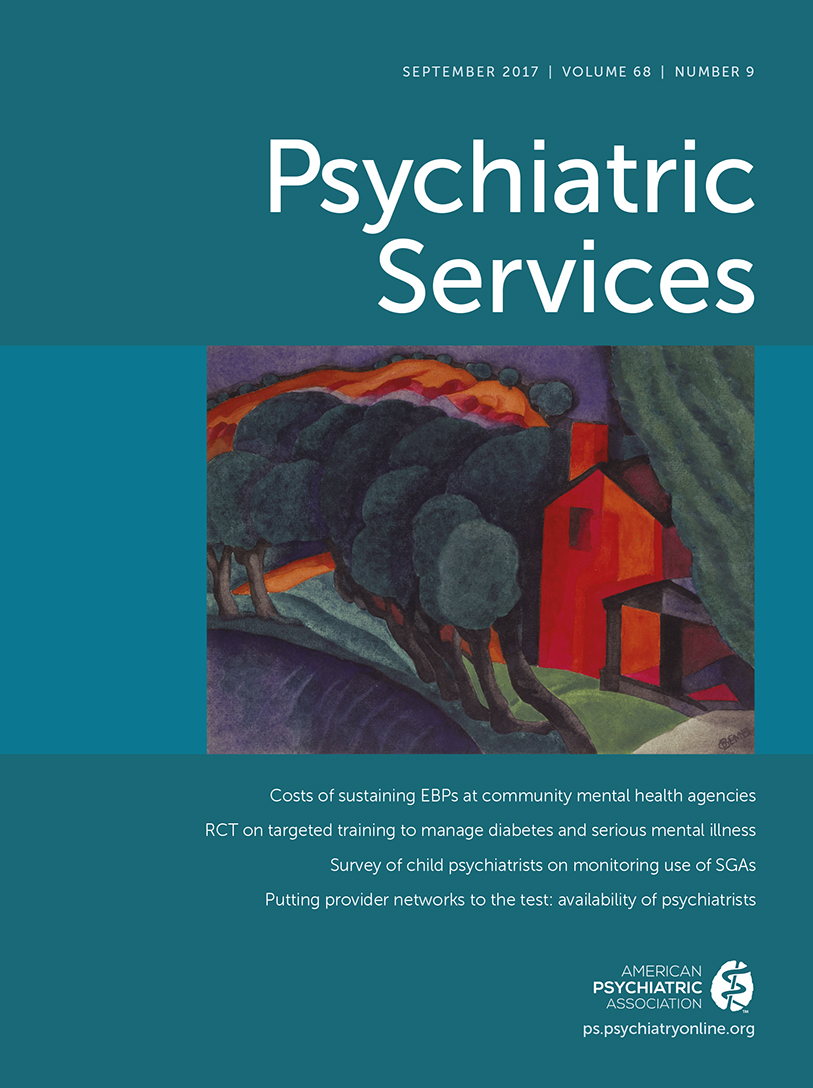Patients’ Experiences of Restrictive Interventions in Australia: Findings From the 2010 Australian Survey of Psychosis
Abstract
Objective:
The authors used survey data to investigate patients’ experiences of restrictive interventions in inpatient settings.
Methods:
The 2010 Australian Survey of High Impact Psychosis (N=1,825) asked about restrictive interventions experienced during a mental health admission in the previous year (N=428), ranging from restrictions on leaving a ward to seclusion. The authors explored the relationship between perceived benefit (good or limited versus no benefit) and the number of different types of restrictive interventions experienced.
Results:
Twenty-three percent had recently experienced one or more restrictive interventions; of these, 42% had experienced forced medication and 35% had experienced seclusion. Although most reported some benefit, perceptions of benefit were lower among those who experienced a greater number of interventions.
Conclusions:
People with psychosis who experienced a greater number of restrictive interventions were less likely to find restrictions justified or beneficial. The cumulative effect of increased numbers of restrictions may also lead to worsening perceptions of benefit.



